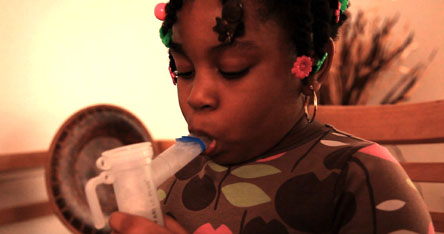How to Deal with Cancer in the Elderly
Why do older people get cancer? Some cancers can be inherited, and others are caused by long-term exposure to cancer-causing substances like those in tobacco smoke.
But cancer also becomes more likely as we age and everyday damage to our cells and our genes eventually builds up. Our body works to repair and control this damage, but when cells continue to grow and divide and don’t die when they should, cancer may develop.
Of course most symptoms of aging have nothing to do with cancer, but older folks who don’t report unusual changes to their doctor risk missing an early cancer that could be treated successfully.
[ Also Read: FDA Unveils New Cigarette Health Warnings ]In many American families, including those from minority populations, people from a wide range of ages live together under the same roof. The elder folk in these homes face what are called the diseases of aging, including hypertension, diabetes, arthritis, and cancer.
Cancer is a common event among older people, and as we age the risk increases, even if no one in our family has had the disease. Whether or not your family member or older close friend lives with you, knowing a little about the world of cancer and the elderly can help.
[ Also Read: Medicines for Diseases that Strike Women ]When cancer is found early, treatment may be more likely to work. But decisions about how to treat older people may depend more on their general health and their quality of life than on their actual age.
The presence of other health problems and the medications they are taking for these can also affect which cancer treatments they will receive. On the other hand, older people who are generally healthy do as well with most treatments, including chemotherapy, as their younger counterparts.
[ Also Read: Here are the 10 Symptoms of Oral Cancer ]Pain can be one of the biggest challenges facing older cancer patients, since their other conditions and medications they may take can add to the pain from treatment. Thus it is important for caregivers to be aware of the patient’s overall health condition and to monitor their pain and health status carefully.
One commonly used class of pain relievers, known as NSAIDs, is more likely to produce side effects in older patients, such as stomach and headaches, constipation, and confusion.
[ Also Read: How to Lower Your Cancer Risk ]On the other hand, older patients often don’t receive opioid drugs (powerful pain relievers such as oxycodone) because some providers and patients themselves believe they may be dangerous. However, these drugs can prove particularly effective in older patients who can tolerate them.
This is why family members, caregivers, and doctors of elderly cancer patients should –– in consultation with the patient –– try to assess not only any compromising health conditions, but also their daily quality of life.
[ Also Read: What Celebs Do to Keep You Healthy ]This should include looking at their social, emotional, and spiritual lives, all of which are likely to be challenged by cancer treatment and recovery. It is important for the patient and family members (and anyone else who is advocating for the patient) to ask questions and have open conversations with the health care team.
One good way to do this is to ask for a family meeting to discuss the patient’s treatment plan and quality of life during and after treatment.
National Cancer Institute (NCI) leads the National Cancer Program and the National Institute of Health (NIH) effort to reduce the burden of cancer and improve the lives of cancer patients and their families, through research into prevention and cancer biology, the development of new interventions, and the training and mentoring of new researchers.
Photo courtesy: NCI




